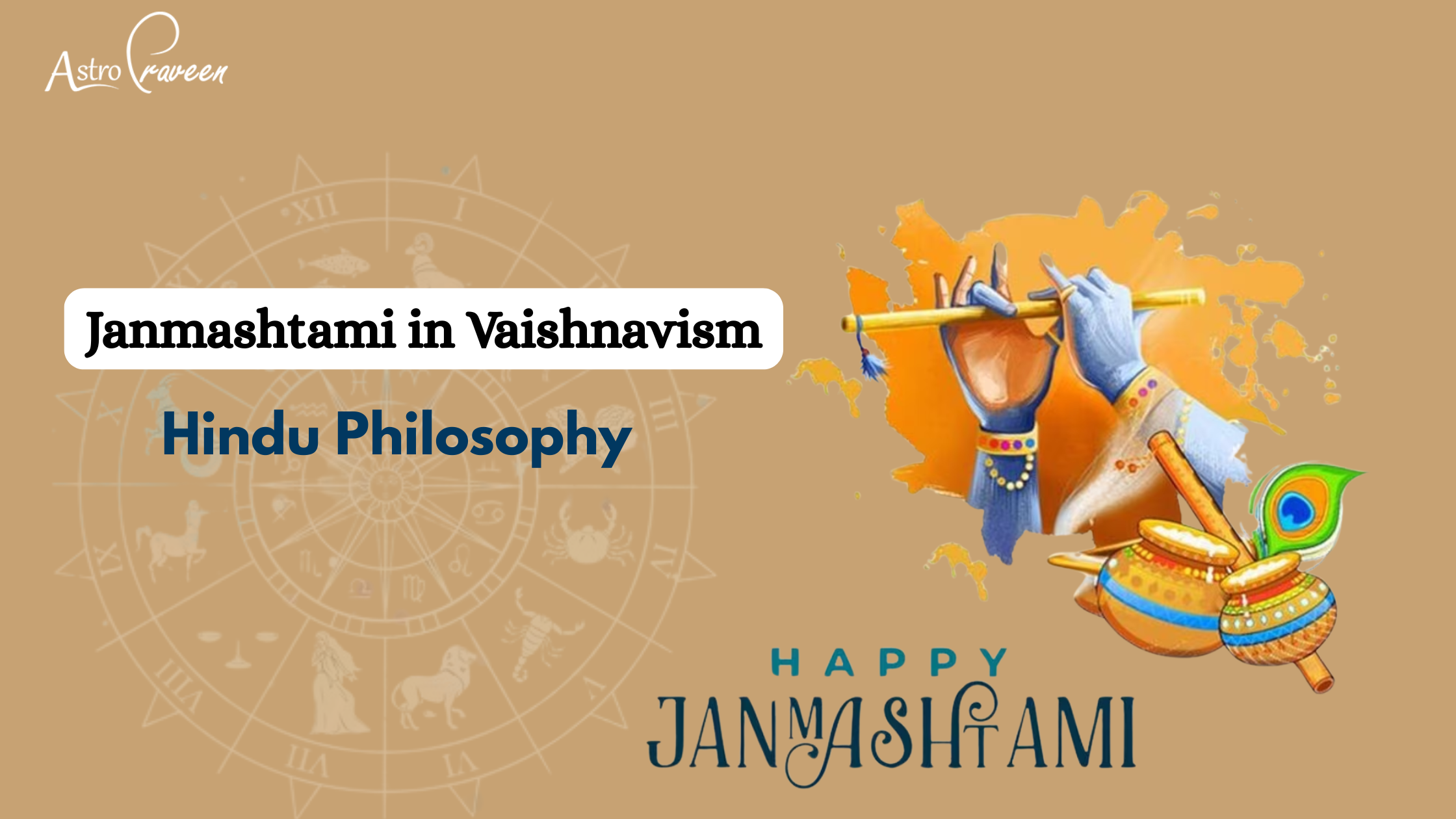


Shri Krishna Janmashtami 2025 is such an event when devotion, philosophy and tradition are in complete harmony. To the devotees of Vaishnavism, it is not simply a celebration that commemorates the birth of Lord Krishna, but also a reminder of the eternal principles He introduced into the world: truth, love, courage and being able to rise against injustice.
It is more than a calendar date. The living tradition, the Janmashtami, is the festival that invites you to take a moment, contemplate, and coordinate your life with the higher truths of Hindu philosophy. In this guide, we will examine when Janmashtami will take place in 2025, why this day is so important to Vaishnavism, and how to take the celebration home in a personal and meaningful way.
In 2025, Janmashtami will be observed on Saturday, 16 August. It falls on the Ashtami Tithi of Krishna Paksha in the month of Bhadrapada.
For Vaishnavites, the highlight is the Nishita Kaal—the sacred midnight window believed to be the exact time of Krishna’s birth.
Different communities sometimes observe Janmashtami on different days due to variations in lunar calculations and sunrise timings. If you want to follow the exact tradition for your region, it’s worth checking with your local temple or a trusted astrologer.
The story of Krishna’s birth is one of hope in the face of fear. Over 5,000 years ago, in the prison of Mathura, Krishna appeared to Devaki and Vasudeva, fulfilling a prophecy to end the cruelty of King Kansa and restore dharma.
For Vaishnavites, Krishna is the Supreme Lord, the eighth avatar of Vishnu. His birth is seen as a turning point—light breaking into darkness, divine love dispelling tyranny. His life and teachings, especially those in the Bhagavad Gita, offer a way to live with clarity, integrity, and devotion.
These lessons aren’t bound to the past. Whether you’re facing a marriage problem or need career prediction astrology support, Krishna’s example—acting with purpose while staying grounded in truth—remains as relevant as ever.
The birth of Krishna can be considered to be both an event and a spiritual milestone. It is a manifestation of Bhakti Yoga, which is a path of total devotion to God in Vaishnavism. It is a day to remember the fact that love and devotion are not some abstract ideals but everyday practices.
Krishna was born philosophically to symbolize the realization of the divine in the human heart, to come out of the spell of ego and ignorance. The time of the festival in Nishita Kaal is not arbitrary, but an instance when the energy of the cosmos is most favorable to spiritual maturity. Vaastu consultancy is based on the same principle with proper alignment between natural forces and human living spaces being important to harmony.
Saints such as Vallabhacharya, Chaitanya Mahaprabhu, and Srila Prabhupada among others have not only emphasized that Janmashtami is a day to reconnect with truth, service, devotion, but also a lifestyle.
The beauty of Janmashtami lies in its variety of expressions, each one rooted in love for Krishna:
For those who participate, these aren’t just customs—they’re heartfelt offerings.
If you’re celebrating at home, you can make the experience special without it feeling complicated:
If you want your celebration to align perfectly with auspicious timings, consulting an astrologer or using vaastu principles can make a difference.
Janmashtami is an astrologically important day. Planetary arrangements during the birth of Krishna are believed to enhance such traits as wisdom, leadership, and divine charm. When you watch the festival keeping in tune with the correct muhurat, then you are in touch with these elevating energies.
That is why astrology is also consulted by some individuals when seeking personal advice during Janmashtami- It could be regarding solving a matrimonial issue, home planning according to vaastu or changing a career at the appropriate time. The same cosmic wisdom, which created the birth of Krishna, can be used to make decisions in your life.
Shri Krishna Janmashtami 2025 is an abode of devotion, however, more than that it is an offer to live the teachings of Krishna throughout the year. Fasting, singing and praying is good, but the true test is how you can carry those good things, compassion, courage and faith in your everyday life.
This year, make the festival more than a ritual. May it be a start of a more deeper relationship with the values Krishna practiced. And when you want some expert advice on how to live in rhythm with some good timing, a reliable astrologer can assist you to apply this sacred timing to clarify love, home, and work.
Ans. In Vaishnavism, Janmashtami marks the divine appearance of Lord Krishna, regarded as the Supreme Personality of Godhead. It is a day to reflect on His teachings, engage in devotional practices like kirtan and fasting, and deepen one’s connection with bhakti (devotion).
Ans. Janmashtami embodies core Hindu philosophical concepts such as dharma (righteous duty), karma (actions and their consequences), and bhakti (devotion). The life of Krishna, especially as narrated in the Bhagavad Gita, serves as a guide for living a life rooted in spiritual wisdom.
Ans. Fasting and night vigils are acts of tapasya (spiritual discipline). They help purify the mind, strengthen self-control, and allow devotees to focus entirely on remembering Krishna’s divine pastimes without worldly distractions.
Ans. The Bhagavad Gita, spoken by Krishna to Arjuna, is often read or discussed during Janmashtami. It encapsulates the essence of Hindu philosophy, emphasizing selfless action, devotion, and the realization of one’s true nature.
Ans. Vaishnava temples often hold elaborate abhishekas (ceremonial baths of the deity), 24-hour kirtans, dramatic enactments of Krishna’s pastimes, and discourses on the scriptures. The focus is on deepening devotion and recognizing Krishna not just as a historical figure but as the eternal Supreme Being.

In the cosmic realm of astrology, where stars align and destinies intertwine, Astrologer Praveen Kumar emerges as a guiding light of wisdom
© Copyright 2025, Astrologer Praveen Kumar. All rights reserved.
